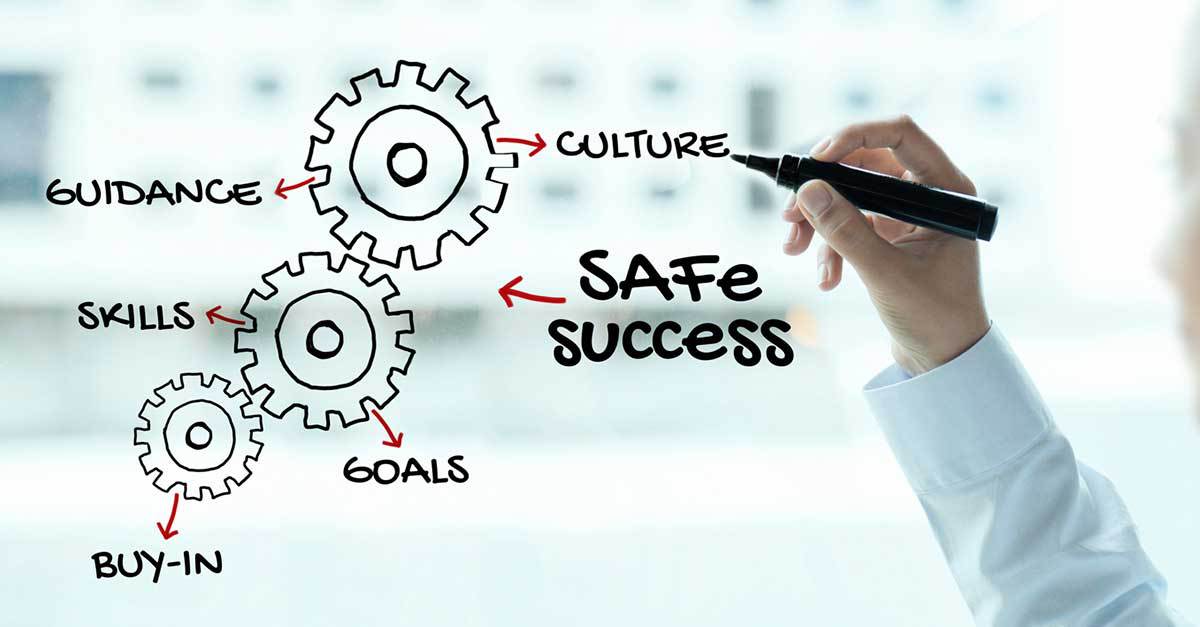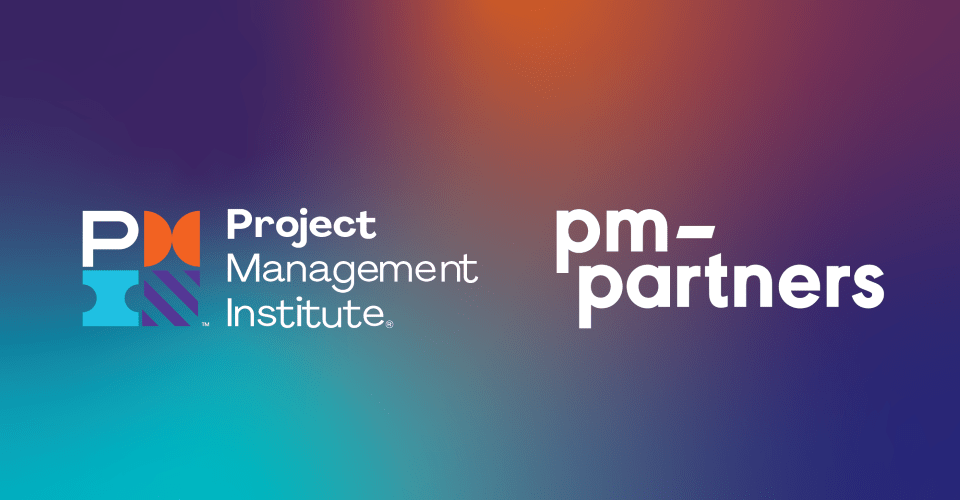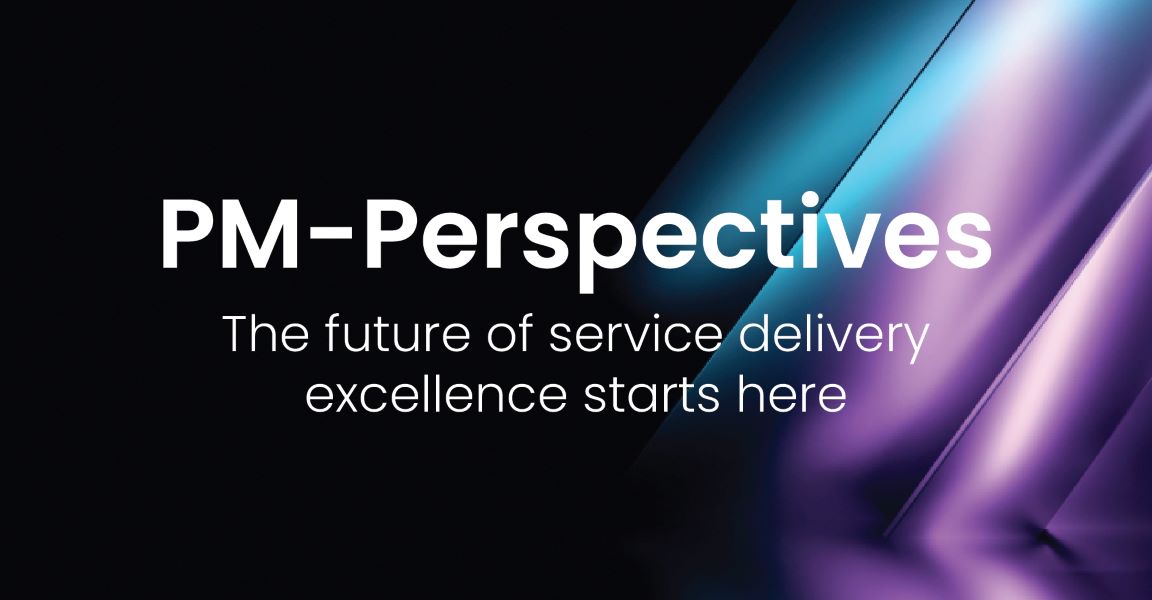5 success factors for SAFe® implementation

Despite the popularity of the Scaled Agile Framework® (SAFe®) and its proven roadmap to organisational agility, plenty of SAFe roll outs do go awry. Before you dive into your first implementation, Matt Sharpe, PM-Partners Agility Practice Lead/Agile Principal Consultant, shares the top five success factors for SAFe which he sees most commonly in today’s market.
Due to the success of agile for projects, and the dynamic business environment of recent years, organisations are increasingly looking to extend lean-agile practices at enterprise level. According to the latest State of Agile report, digital transformation is a key driver for medium to large concerns, while smaller companies are most likely scaling agile to help them manage distributed teams.
As the same report shows, the Scaled Agile Framework® (SAFe®) is still the scaling method of choice for agile use in large, more complex projects – and retains a sizeable margin over its nearest rival Scrum@Scale/Scrum of Scrums. The structured nature of SAFe gives organisations – especially those with little to low agile maturity – an orderly pathway into agile and the promise of improved productivity and results.
All that said, the transition to Scaled Agile is not without its challenges – and as with any change, it’s important to lay the right groundwork to set up a SAFe implementation that’s both efficient and effective. With that in mind, what are the key success factors for SAFe that organisations should focus on?
1. SAFe® success relies on executive sponsorship
Successful SAFe implementation requires strong executive sponsorship and support; in fact, according to research, almost two in five transitions suffer from issues with leadership buy-in and direction so it is imperative to get this right from the start.
This means that senior leaders should be fully committed to the change and willing to lead by example. Managers and team leaders must be:
- able to lead and motivate their teams
- willing to take on the added responsibilities that come with a SAFe environment; and
- willing to invest the required time and resources.
Without this buy-in, teams will struggle to get the resources and support they need to be successful.
Further to that, leaders must also follow through with necessary changes in the organisation’s structure and processes to support the new way of working. Properly implemented Scaled Agile impacts every part of your organisation, not just the delivery functions. This is why the Scaled Agile implementation roadmap recommends that one of the first activities an organisation should undertake is executive alignment.
2. Clear goals and metrics boost SAFe® success
It’s important to have a clear understanding of why you’re undertaking this SAFe implementation, so start by answering these questions:
- What do you want to achieve by implementing SAFe?
- How would you define successful SAFe implementation?
- What does ‘using SAFe successfully’ look like for your organisation?
This means setting specific, measurable goals and metrics that can be used to track progress. Without these, it’s difficult to quantify success. You wouldn’t invest in any other significant restructuring of your organisation without understanding the ‘why’.
3. Train your team members in SAFe®
To support your roll out, team members must have a good understanding of the SAFe framework and how it works. This means providing adequate training and coaching to help them understand the new processes and tools and clarify their roles and responsibilities. It also means providing ongoing support and coaching to help them continue to improve their skills.
You may already have agile-adept team members who can act as enablers for the methodology, and it is important to bring them along and make sure they understand the enterprise-level version as well. Scaled Agile offers a suite of different training options targeted to all levels of the organisation, from practitioners to leaders and specialist team roles. Likewise, ensuring teams have guidance from qualified SAFe Practice Consultants – either by utilising third party specialists or upskilling internal advocates – is critical to SAFe success.
4. Don’t forget the cultural change
SAFe is not just a process or a tool, it’s a culture change. SAFe implementations often involve significant changes to the way work is done, and it’s important that these changes align with the organisation’s culture and values. Without this alignment, it can be difficult to get buy-in and support from team members. This means focusing on creating an environment that is conducive to agile practices and principles, and encouraging team members to collaborate, communicate and continuously improve.
5. Good governance is key
Scaled Agile implementations often require a clear governance and oversight structure to ensure that:
- outputs and outcomes are aligned with the organisation’s overall goals and objectives
- the work is of high quality
- value is offered to the client
- the work meets the organisation’s standards and practices; and
- there is a focus on relentless and continuous improvement.
This may include setting up a lean portfolio management framework or establishing a Lean-Agile Centre of Excellence.
Scaled Agile implementations can be complex and challenge, but by focusing on these key success factors – executive buy-in, clear goals and metrics, adequate skills and training, embedding cultural change and good governance – organisations can avoid common obstacles and help to ensure their SAFe transition is a smooth one.
Remember, while SAFe is a powerful framework, it’s not a magic bullet. It takes hard work from everyone involved to experience the true value of an implementation. But with the right approach and ongoing coaching, it can lead to improved results across the enterprise, increased delivery of value and a more productive, efficient workforce.
SAFe and Scaled Agile Framework are registered trademarks of Scaled Agile, Inc.
Need help implementing the Scaled Agile Framework in your organisation? PM-Partners can make your transition smooth and successful with a range of training, facilitation and review services. Contact us or call 1300 70 13 14 for more details.

About The Author
Matt Sharpe
Agility Practice Lead/ Agile Principal Consultant, PM-Partners
Matt has a proven track record across multiple industries, from government and financial services to not-for-profit and media, and is passionate about helping organisations succeed through leveraging best practice in business agility, change management, digital, agile transformations, and capability uplifts. He has deep expertise across agile project, programme and portfolio management, diagnostics and assessments and extensive experience in consulting, digital strategy, BPR, analytics and project management. Matt is a Certified SAFe 6.0 Practice Consultant (SPC), AgilePM practitioner, Lean Portfolio Manager, certified Scrum professional, CSM and CSPO.








